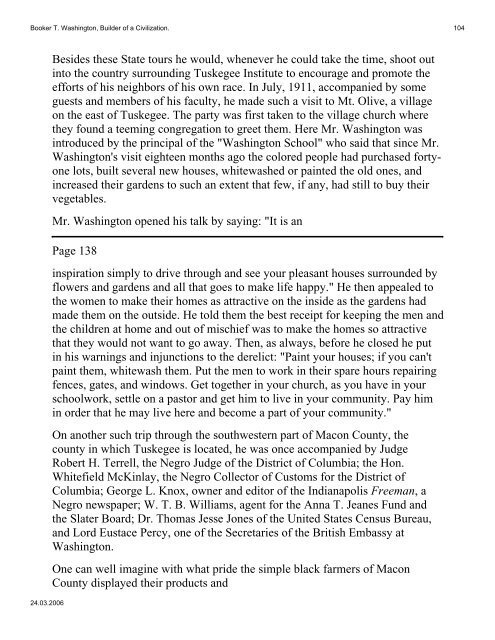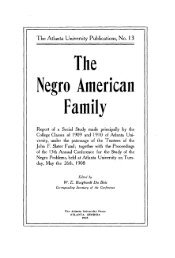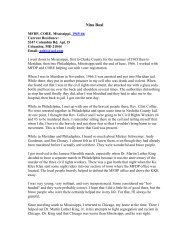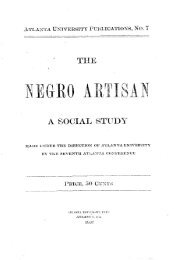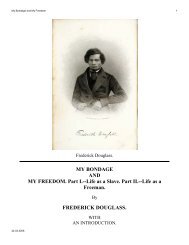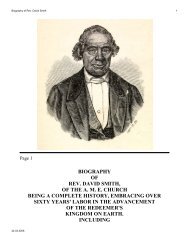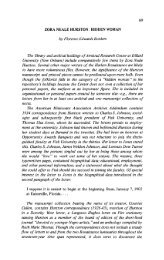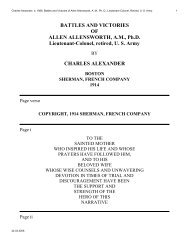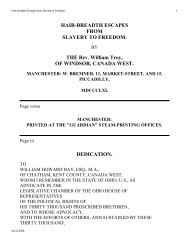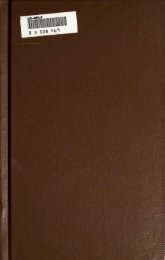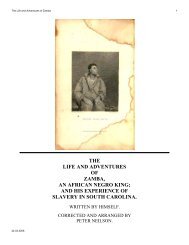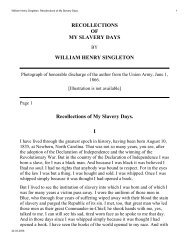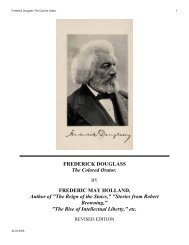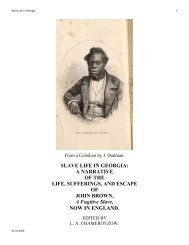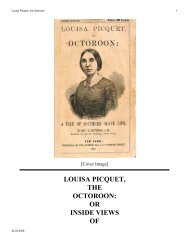Booker T. Washington, Builder o - African American History
Booker T. Washington, Builder o - African American History
Booker T. Washington, Builder o - African American History
You also want an ePaper? Increase the reach of your titles
YUMPU automatically turns print PDFs into web optimized ePapers that Google loves.
<strong>Booker</strong> T. <strong>Washington</strong>, <strong>Builder</strong> of a Civilization. 104<br />
24.03.2006<br />
Besides these State tours he would, whenever he could take the time, shoot out<br />
into the country surrounding Tuskegee Institute to encourage and promote the<br />
efforts of his neighbors of his own race. In July, 1911, accompanied by some<br />
guests and members of his faculty, he made such a visit to Mt. Olive, a village<br />
on the east of Tuskegee. The party was first taken to the village church where<br />
they found a teeming congregation to greet them. Here Mr. <strong>Washington</strong> was<br />
introduced by the principal of the "<strong>Washington</strong> School" who said that since Mr.<br />
<strong>Washington</strong>'s visit eighteen months ago the colored people had purchased fortyone<br />
lots, built several new houses, whitewashed or painted the old ones, and<br />
increased their gardens to such an extent that few, if any, had still to buy their<br />
vegetables.<br />
Mr. <strong>Washington</strong> opened his talk by saying: "It is an<br />
Page 138<br />
inspiration simply to drive through and see your pleasant houses surrounded by<br />
flowers and gardens and all that goes to make life happy." He then appealed to<br />
the women to make their homes as attractive on the inside as the gardens had<br />
made them on the outside. He told them the best receipt for keeping the men and<br />
the children at home and out of mischief was to make the homes so attractive<br />
that they would not want to go away. Then, as always, before he closed he put<br />
in his warnings and injunctions to the derelict: "Paint your houses; if you can't<br />
paint them, whitewash them. Put the men to work in their spare hours repairing<br />
fences, gates, and windows. Get together in your church, as you have in your<br />
schoolwork, settle on a pastor and get him to live in your community. Pay him<br />
in order that he may live here and become a part of your community."<br />
On another such trip through the southwestern part of Macon County, the<br />
county in which Tuskegee is located, he was once accompanied by Judge<br />
Robert H. Terrell, the Negro Judge of the District of Columbia; the Hon.<br />
Whitefield McKinlay, the Negro Collector of Customs for the District of<br />
Columbia; George L. Knox, owner and editor of the Indianapolis Freeman, a<br />
Negro newspaper; W. T. B. Williams, agent for the Anna T. Jeanes Fund and<br />
the Slater Board; Dr. Thomas Jesse Jones of the United States Census Bureau,<br />
and Lord Eustace Percy, one of the Secretaries of the British Embassy at<br />
<strong>Washington</strong>.<br />
One can well imagine with what pride the simple black farmers of Macon<br />
County displayed their products and


